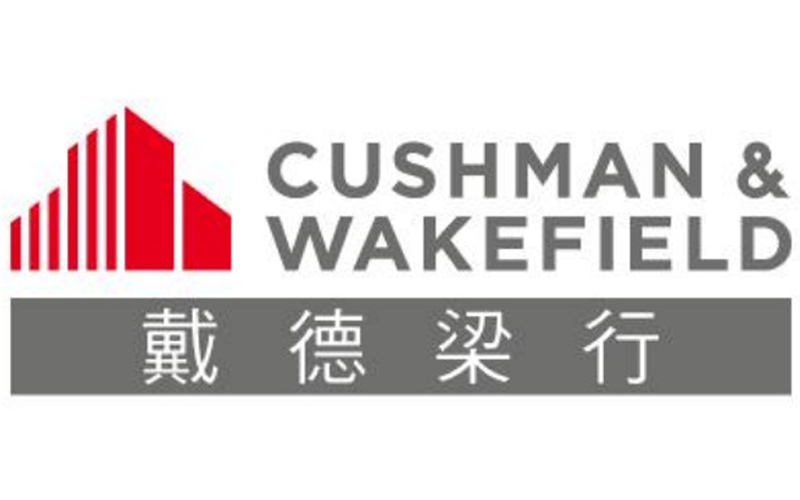New survey highlights clear challenges for Hong Kong office occupiers, while finding optimism for recovery and potential new opportunities in a changed market
- Cost savings are now a primary focus, with more than 85% of respondents experiencing negative business impacts from COVID-19
- Many firms are now anticipating reduced space needs over the next three years
- Around 70% of respondents believe business will return to pre-COVID-19 levels within the next 12 months
- Firms are clearly embracing remote working, with 65% of respondents expecting to adopt some degree of working from home on a long-term basis
CHINA – Media OutReach – 24 September 2020 – Cushman & Wakefield has released their “Occupier Survey 2020: Hong Kong ” report, a first study from the firm into how office tenants in Hong Kong are meeting the challenges of COVID-19, how it has resulted in changes to their office leasing plans, and the degree to which pandemic-response measures have become a permanent fixture of their strategies. The report also offers recommendations for occupiers to help optimize their space strategies ahead.
“Many firms in Hong Kong began this year hopeful for a more stable business environment following a difficult 2019, with U.S.-China trade tensions and social unrest both having contributed to growing uncertainties. The months-long pandemic, however, has dealt many firms a third blow and led to an even more uncertain business outlook amongst office occupiers. Beyond that, COVID-19 has also forced many to adopt new ways of working and given way to new priorities that may outlive the pandemic,” said Reed Hatcher, Head of Research, Hong Kong and the lead author of the report.
“The survey responses clearly reflect current challenges, while pointing to optimism for a recovery and a potentially new, more multifaceted office market,” added Hatcher.
“Our recommendation to occupiers is to leverage the current uncertainty and weaker market conditions now, in anticipation of a possible rebound in 2021. Such action can include restructuring leases to expire in 2022/2023, at which point 5.2 million sq ft of new Grade A office space is scheduled to enter the Hong Kong market. Many of the new buildings will offer high specs, which may include LEED and WELL certifications, offering occupiers the opportunity to address health and safety in their portfolios,” shared Keith Hemshall, Executive Director and Head of Office Services, Hong Kong.
The survey was conducted from June to July 2020 and engaged key office occupiers representing a broad cross-section of the city’s office occupier market. The findings make clear that the recent months have been especially challenging for Hong Kong occupiers. More than 85% of respondents have seen negative impacts to their business from COVID-19. As a result, cost cutting has become the priority for many. The weak sentiment is also reflected in firms’ longer-term lease strategies, with many now anticipating smaller space needs over the next three years than at the beginning of the year, while a significant number are taking a wait-and-see approach.
However, many respondents also express optimism in a recovery. Around 70% believe their business will return to pre-COVID-19 levels within the next 12 months.
COVID-19 also evidently has long-lasting implications for the workplace and how occupiers consider their space needs. While many firms have already invested in technologies to allow more agile working, the pandemic is further fueling the trend to support working remotely. And although it has not been a significant trend in the past in Hong Kong, views are now clearly changing on the subject of remote work, with 65% of respondents expressing interest in adopting some level of working from home on a long-term basis.
Key takeaways from Occupier Survey 2020: Hong Kong :
- The majority of firms are suffering near-term business impacts from the effects of the COVID-19 pandemic, but are also optimistic for the chances of a recovery in the next 12 months.
- The pandemic has very clearly had an effect on office leasing strategies, with cost savings becoming the immediate focus for a majority of firms, while others are freezing leasing plans.
- Occupiers have revised their office space needs, with over a third of surveyed companies now planning to downsize over the next three years.
- There is significant uncertainty in lease renewal or relocation planning, with many adopting a wait-and-see approach, while firms in core areas with higher rentals are more likely to relocate when their current lease expires.
- Longer-term, in the aftermath of COVID-19, the majority of firms favor investment into technology and remote working capabilities, and firms are clearly embracing remote working, with 65% of respondents expecting to adopt some degree of working from home on a long-term basis.
- Among firms indicating that they plan to continue to allow remote working post-pandemic, the majority suggest they will apply working-from-home (WFH) practices to between 11% and 30% of their workforce.
- Staff preferences and risk hedging, rather than cost savings, are the main drivers for firms signaling a shift to some degree of WFH.
- The mid-term future for the traditional office appears secure, with very few firms stating that it will become obsolete within the next 20 years, but many respondents do see office workplaces undergoing a significant transformation in functionality in the coming years.
About Cushman & Wakefield
Cushman & Wakefield (NYSE: CWK) is a leading global real estate services firm that delivers exceptional value for real estate occupiers and owners. Cushman & Wakefield is among the largest real estate services firms with approximately 53,000 employees in 400 offices and 60 countries. Across Greater China, 22 offices are servicing the local market. The company won four of the top awards in the Euromoney Survey 2017, 2018 and 2020 in the categories of Overall, Agency Letting/Sales, Valuation and Research in China. In 2019, the firm had revenue of $ 8.8 billion across core services of property, facilities and project management, leasing, capital markets, valuation and other services.


















